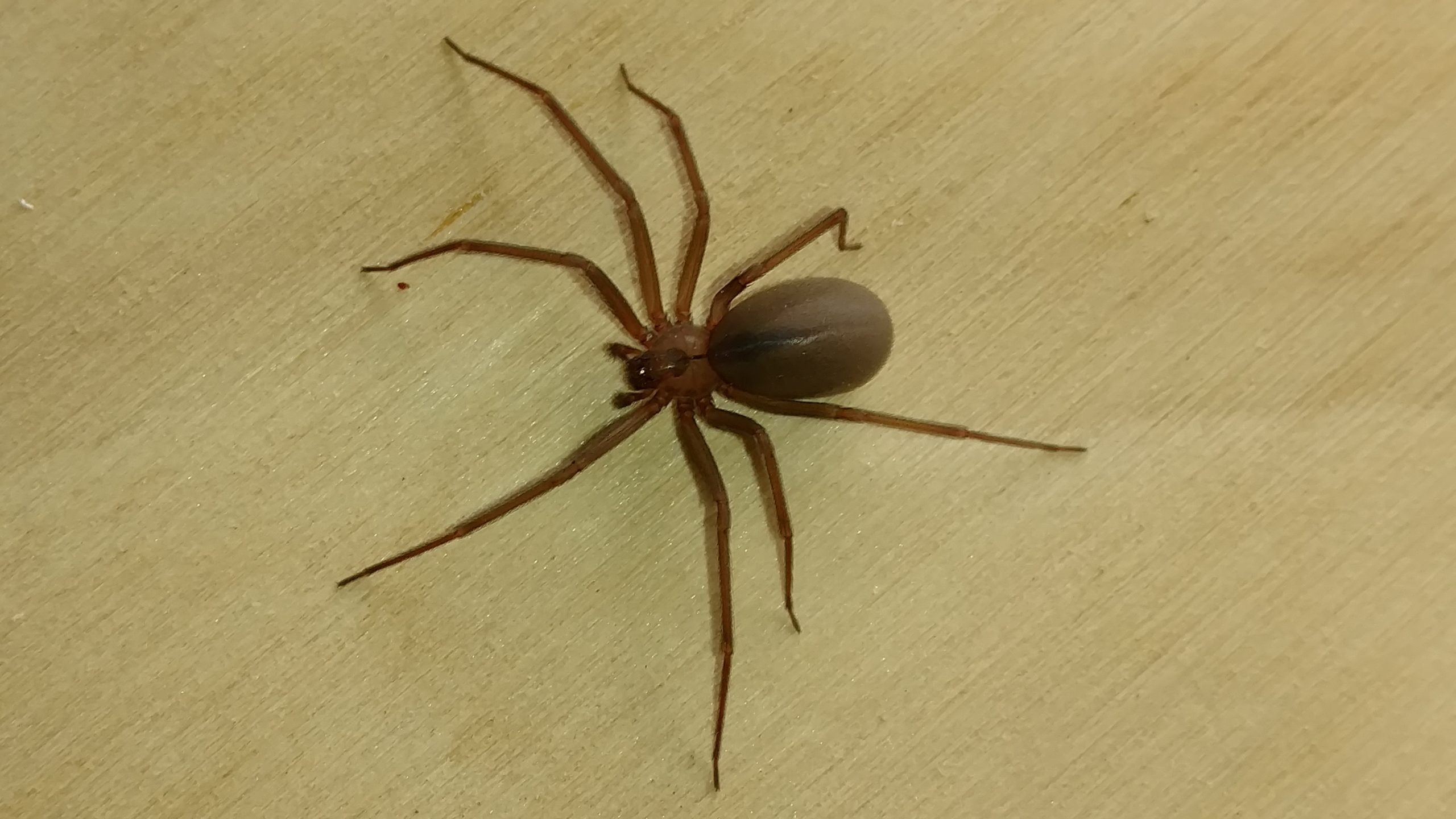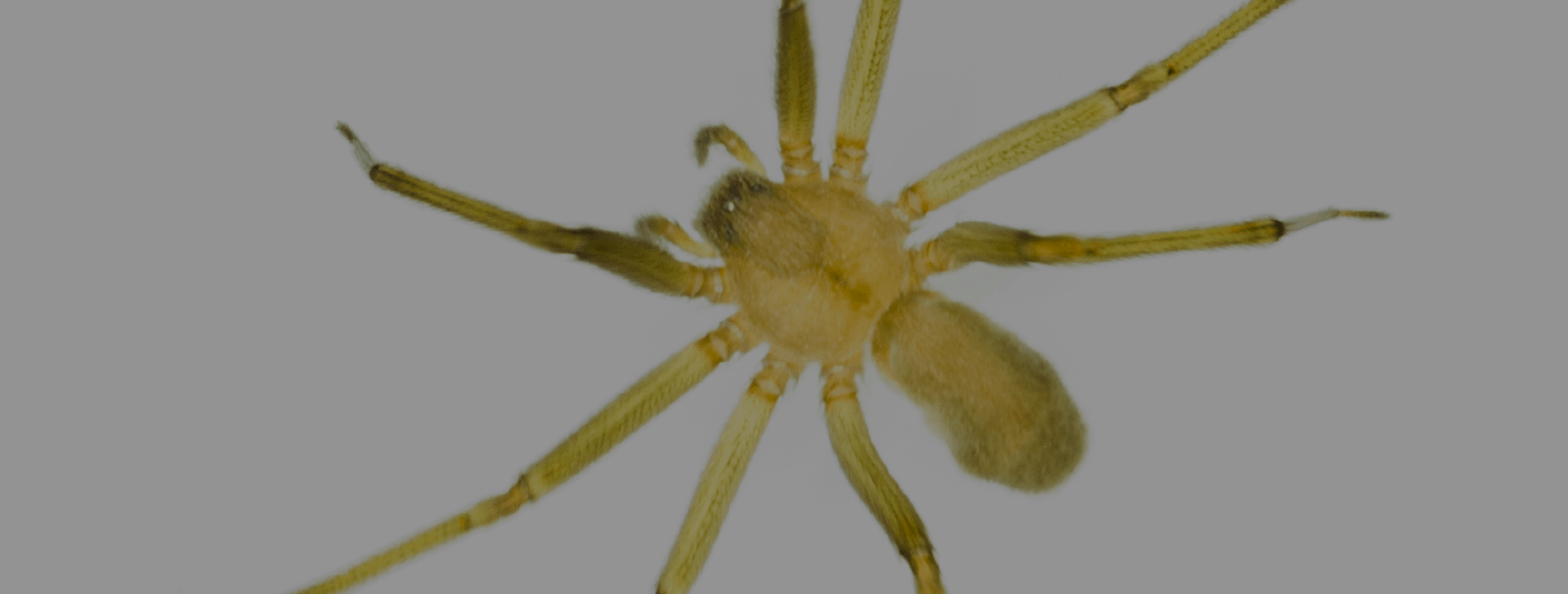
We comply with the Federal Trade Commission 1998 Children’s Online Privacy Protection Act (COPPA).

Recluse spider predators code#
The 4-H Name and Emblem have special protections from Congress, protected by code 18 USC 707. Reference to commercial products or trade names does not imply endorsement by MSU Extension or bias against those not mentioned. This information is for educational purposes only. Quentin Tyler, Director, MSU Extension, East Lansing, MI 48824. Issued in furtherance of MSU Extension work, acts of May 8 and June 30, 1914, in cooperation with the U.S. Michigan State University Extension programs and materials are open to all without regard to race, color, national origin, gender, gender identity, religion, age, height, weight, disability, political beliefs, sexual orientation, marital status, family status or veteran status.
Recluse spider predators full#
MSU is an affirmative-action, equal-opportunity employer, committed to achieving excellence through a diverse workforce and inclusive culture that encourages all people to reach their full potential. Wolf Spider (Family: Lycosidae) In Human Hand Wolf Spider (Family: Lycosidae) in burrow Treating basements and crawlspaces with a residual insecticide (like Bayer Advanced Home or Ortho Home Pest Defense) may reduce their numbers.īe sure to read and follow all instructions and safety precautions found on the label before using any pesticide. These spiders occur in very low numbers, and usually homeowners encounter only one or two of them.Ĭhemical control is not necessary unless large numbers are found. Wolf spiders normally enter the house near ground level and are normally encountered in basements, crawlspaces, and breezeways. Female wolf spiders carry their young on their backs for a considerable time after they hatch. Most wolf spiders hunt at night but occasionally they can be found during the day. Brown recluse and related recluse spiders (. Others are concerned that they might be the brown recluse spider which is not known to occur in Michigan. Funnel weaver spiders and wood louse hunters are the two groups most commonly mistaken for recluse spiders.

Wolf spiders are usually a shock to people who are unfamiliar with them because of their large size and some have mistaken them for an escaped pet tarantula. Some live in burrows in the ground and ambush their prey as it crawls past the opening of the burrow. Vetter also makes recommendations for control of the spider for households in areas where the spiders are found and describes other species of recluse spiders. Most lycosids do not construct snares (webs) but hunt their prey on the move like wolves do (hence their common name). Their venom is not particularly dangerous. They are not known to be aggressive, but they will bite in self-defense if handled roughly. My results suggest that scavenging is an opportunistic behavior in recluses that requires specific circumstances that may rarely occur in nature.Wolf spiders or lycosids are fairly common predators that feed on large insects and other spiders. Finally, recluses preferred dead prey that were freshly killed or less than 24 hours old to items dead for longer periods. Spiders that had fed recently were more likely to scavenge. Recluses were more likely to scavenge when presented with large live prey paired with dead prey of equal size than when presented with small live and dead prey. Overall, recluses preferred live prey over dead, but their choice was influenced by all three variables. However, most spiders do not bite humans, and with a few exceptions, spider venoms are not harmful to humans or other mammals. I varied predator satiation (spiders not fed for two or four weeks), prey size (small or large), and prey quality (live, fresh dead, dead 1-2 days, 1 week or 1 month). I offered crickets (Acheta domesticus) to brown recluses in several choice experiments. Because scavenging is an unexpected behavior in normally predatory spiders, I hypothesized that special circumstances must converge for the brown recluse to prefer dead prey over live prey. All spiders have venom but only 2 spiders in Wisconsin are considered poisonous: the Northern Widow.

I examined prey choice of the brown recluse spider (Loxozceles reclusa Gertsch & Mulaik 1940) with reference to unusual scavenging behavior originally reported by Sandidge (2003). Spiders are beneficial predators but many people fear them.


 0 kommentar(er)
0 kommentar(er)
